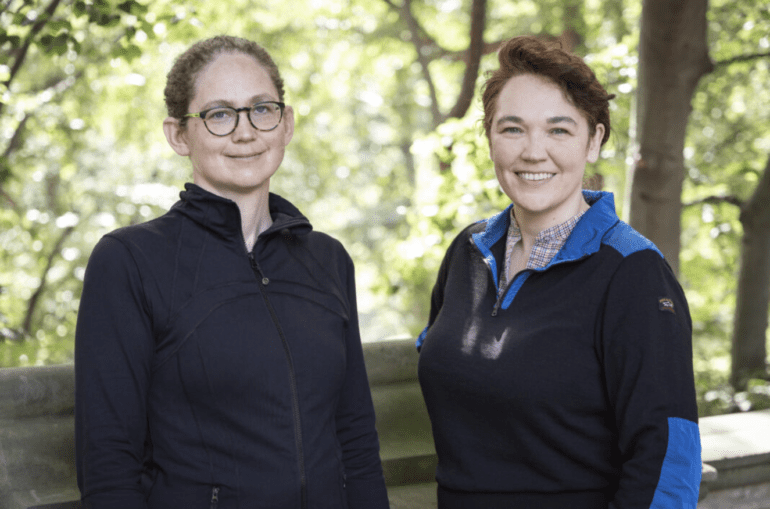TL;DR:
- Jura Bio, led by CEO Dr. Elizabeth Wood and CSO Dr. Julie Norville, merges AI and SynBio to pioneer immune-based therapeutics.
- Their ML-first workflow enables large-scale model training, revolutionizing the discovery and development of immune therapies.
- Jura Bio’s innovative gene synthesis technology generates a vast library of TCR candidates, including those for previously unrecorded cancer targets.
- A research collaboration with Syena, a cell therapy product company, aims to advance TCR-based therapies.
- Securing $16.1 million in financing will accelerate the mapping of the human adaptive immune system.
Main AI News:
In a bold fusion of cutting-edge scientific disciplines, Jura Bio’s CEO, Dr. Elizabeth Wood, and the company’s CSO, Dr. Julie Norville, have charted a visionary course toward developing a drug development enterprise. Their journey began during their post-doctoral research, where they recognized the potential to translate the remarkable successes they witnessed in malignancy therapy into the realm of autoimmune diseases. Over the past six years, these two brilliant scientists have harnessed their profound expertise in artificial intelligence (AI) and synthetic biology (SynBio) to explore the intricate domain of T-cell receptor and antigen binding. Their mission is to establish a comprehensive end-to-end platform for the creation of immune-based therapeutics.
As Cameron Gardner, PhD, Jura Bio’s Director of Research, highlighted during a recent presentation at the Bioprocess International meeting in Boston, the crux of therapeutic success lies within the TCR-Epitope-HLA synapse. Achieving this vision necessitated the creation of a map that could seamlessly connect any antigen/HLA combination with any candidate TCR. This intricate map would enable the identification of TCRs that possess the qualities of being effective, safe, tunable, and polyclonal. However, the challenge was immense, requiring predictions for a staggering 1028 interactions, a number that dwarfs the count of stars in the universe.
The bottleneck in this mapping endeavor revolved around the ability to manufacture and test TCRs, epitopes, and HLAs. To surmount this hurdle, Jura Bio adopted a pioneering ML-first workflow, empowering them to construct and train models using vast datasets. This approach allowed Jura Bio to propose, construct, and physically evaluate candidate solutions on an unprecedented scale.
In contrast to approaches relying on small libraries with limited utility or large libraries of low quality, Jura Bio adopted a strategy that involved integrating their technology into the manufacturing process. This strategic decision resulted in the creation of a vast library, abundant with valuable targets.
Dr. Julie Norville emphasized, “In areas where conventional methodologies fall short, machine learning emerges as the catalyst that unlocks the full potential of cell-based therapy and personalized medicine.”
One of the remarkable outcomes of Jura Bio’s ML-enhanced gene synthesis technology is the generation of a library boasting a staggering 100 billion potential human and improved TCR candidates. This resource empowers the discovery and development of antigen-specific TCRs, reaching uncharted territory by identifying TCRs for prostate cancer and other neoantigen targets previously unseen in key HLA-types.
For example, Jura Bio was tasked with a significant challenge when they received sequences from six melanoma patients refractory to MART-1 specific adoptive cell therapy. Leveraging their HLA-matched variational synthesis library, they identified 300 candidate sequences and pinpointed ten candidates for expansion and engineering. Furthermore, the company has pioneered the manufacture of peptidome- and virodome-scale libraries of antigens, shedding light on the intricate mechanisms of autoimmunity that continue to elude comprehension.
Dr. George Church, Founder and Scientific Advisory Board Chair of Jura Bio, stated, “AI-ML and multiplex libraries are formidable tools in their own right, but their combination generates a remarkable synergy known as ML-ML variational synthesis. This strategy has the potential to yield billions to trillions of candidate solutions. Jura Bio’s mastery of this approach for TCR, MHC, and T-cell engineering is unparalleled and in high demand.”
Now, Jura Bio has unveiled a groundbreaking research collaboration with Syena, a cell therapy product company and a subsidiary of Replay, a genome writing firm. Together, they aim to advance TCR-based therapies to new heights.
“We’re delighted to announce our inaugural partnership with Replay and its subsidiary, Syena,” said Dr. Elizabeth Wood. “This collaboration validates our approach of harnessing synthesized human T-cell repertoires to create safe and effective libraries for the discovery of antigen-specific TCRs on a grand scale.”
She continued, “The human immune system is a potent source of safe and effective immune receptors. By leveraging machine learning to revolutionize the gene synthesis process, we can produce exceptionally high-quality immune receptor libraries. This, in turn, accelerates the development process, identifying TCRs that target the most formidable therapeutic challenges.”
Adrian Woolfson, Executive Chairman, President, and Co-Founder of Replay, commended Jura Bio’s unique tools and expertise, highlighting their potential to discover challenging TCRs of therapeutic significance. He also mentioned the focus on identifying high-performing TCRs recognizing targets like KRAS G12D.
While the financial terms of the agreement were not disclosed, Jura Bio is set to receive an upfront payment and research funding for the duration of the partnership. Should the option be exercised, Replay and Syena will take charge of global development and secure exclusive worldwide commercialization rights for all TCR-NK therapies resulting from this groundbreaking collaboration.
In addition to this exciting partnership, Jura Bio has secured $16.1 million in financing. This influx of funds will accelerate the mapping of the human adaptive immune system, with the ambitious goal of completing a predictive map of TCR-antigen-HLA binding by the end of 2024. Furthermore, Jura Bio intends to expand its machine-learning backed gene synthesis into the design and discovery of B cell receptors, further solidifying its position at the forefront of transformative medical research.
Conclusion:
Jura Bio’s pioneering approach, fusing AI and synthetic biology, marks a transformative shift in immune-based therapeutics. Their extensive candidate library and strategic collaborations position them as a market leader, promising accelerated advancements in the field, including TCR-based therapies and immune system mapping.

